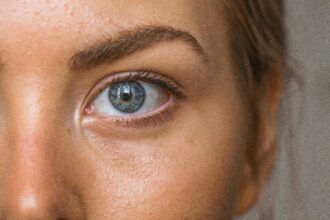Tepezza (teprotumumab) is a medication designed to treat Thyroid Eye Disease (TED), a rare but debilitating condition affecting the eyes and vision. As with many new pharmaceuticals, Tepezza has sparked considerable legal and regulatory discussion. Its journey from approval to market, coupled with emerging litigation, presents a complex landscape for patients and healthcare professionals to navigate. This article delves into the regulatory history of Tepezza and the ongoing litigation it faces, providing a comprehensive understanding of the legal considerations involved.
If you or a loved one are grappling with eye pain from the effects of Thyroid Eye Disease and have been prescribed Tepezza, it’s crucial to be informed about its regulatory background and the legal issues that may impact you. Mass Tort America specializes in such cases, offering guidance and support through the intricate legal maze. Our team is equipped to help you understand your rights and options, ensuring you are not alone in this challenging journey.
Regulatory History Of Tepezza
The journey of Tepezza to FDA approval was marked by rigorous testing clinical trial and evaluation. Initially developed by Horizon Therapeutics, Tepezza received FDA approval in January 2020. This approval was granted under the FDA’s Orphan Drug Act, which is designed to encourage the development of treatments for rare diseases. The expedited approval process highlighted the significant unmet medical need for effective forms of TED treatments.
Clinical trials played a crucial role in Tepezza’s approval. These clinical studies demonstrated significant improvement in eye bulging and double vision among patients with active Thyroid Eye Disease, leading to its recognition as a breakthrough therapy. The data showed that Tepezza effectively reduced the symptoms of TED, offering new hope starting treatment for patients who previously had limited treatment options. However, the fast-tracked approval also meant that long-term effects were not fully understood at the time of approval.
Post-approval, the regulatory focus shifted to monitoring the drug’s safety and efficacy in the broader patient population. The FDA continues to oversee Tepezza, requiring Horizon Therapeutics to conduct post-marketing studies to further assess its long-term safety. This ongoing surveillance ensures that any emerging risks, such as high blood sugar or hearing impairment, are identified and managed promptly, balancing patient access to the drug with the need for continued safety monitoring.
During the post-marketing phase, reports of severe allergic reactions, muscle spasms, and other adverse effects began to emerge. Patients receiving Tepezza infusions have reported symptoms such as headache, muscle spasm, pain, and dry skin. Severe allergic reactions, including trouble breathing and severe stomach pain, necessitate immediate medical attention. It’s crucial for patients to inform their healthcare professional about any side effects and their complete health history, including any history of inflammatory bowel disease, to ensure safe treatment with Tepezza.
Additionally, the management of potential drug interactions and the importance of an effective form of birth control have become key considerations for healthcare providers. Horizon Therapeutics emphasizes the need to monitor blood glucose levels due to the risk of high blood sugar during Tepezza treatment. Licensed healthcare professionals play a vital role in managing these risks and ensuring that patients are well-informed and closely monitored. This collaborative approach aims to maintain the balance between the benefits of Tepezza for treating active Thyroid Eye Disease and the vigilance required to manage its potential side effects.
Emerging Litigation And Patient Concerns
Despite the promising clinical results, Tepezza has not been without its controversies. Since its approval, there have been reports of adverse effects, such as severe stomach pain and high blood sugar, leading to Tepezza litigation against Horizon Therapeutics. Patients have reported experiencing serious side effects, including hearing impairment, which were not fully disclosed during the drug combination initial approval process. These reports have spurred litigation, with plaintiffs alleging that the company failed to adequately warn about these potential risks.
Litigation related to Tepezza often centers on claims of negligence and failure to warn. Plaintiffs argue that Horizon Therapeutics should have provided more comprehensive drug information about the risks associated with infusion reaction with Tepezza treatment. These legal battles underscore the importance of transparency in drug approval and marketing, highlighting the need for pharmaceutical companies to ensure patients are fully informed about the potential risks and benefits of their treatments, including the risk of infusion reactions and severe allergic reactions.
Emerging litigation and patient concerns regarding Tepezza treatment have brought additional attention to these potential risks and side effects. Patients with thyroid eye disease have reported a range of adverse effects, including severe stomach pain, headache, muscle pain, and dry skin. Infusion reactions such as muscle spasms and allergic reactions, ranging from mild to severe, have also been noted. In some cases, patients have experienced high blood sugar, hearing loss or impairment, and even symptoms of inflammatory bowel disease. It is crucial for patients receiving Tepezza to talk with their doctor and healthcare professional about any side effects or health concerns, including potential drug interactions and the need for effective birth control, to ensure a safe treatment plan.
Horizon Therapeutics, the developer of Tepezza, continues to face scrutiny as more patients come forward with their experiences. Clinical studies and post-marketing surveillance aim to uncover the full scope of Tepezza’s impact, but the current wave of litigation underscores the need for thorough patient education and monitoring. Healthcare providers are urged to discuss the potential for severe allergic reactions, infusion reactions, and other side effects with their patients before starting Tepezza treatment. Patients should be advised to stop Tepezza infusion during treatment and seek immediate medical attention if severe symptoms, such as trouble breathing or irregular heartbeat, occur. Ensuring that patients are fully informed about the risks, benefits, and ongoing monitoring of Tepezza is essential for balancing the treatment of active thyroid eye disease with the management of its potential adverse effects.
The legal landscape for Tepezza is evolving, with new cases being filed and existing ones progressing through the courts. These lawsuits seek compensation for damages incurred due to the adverse effects of the drug, hearing problems such as hair loss and muscle spasms. For patients and their families, these legal actions represent a means to seek justice and accountability, aiming to secure financial relief for medical expenses, pain, and suffering caused by the unexpected side effects of Tepezza. If you experience severe symptoms like trouble breathing or irregular heartbeat, contact a healthcare professional immediately.
Navigating The Legal Landscape
Navigating the legal landscape of Tepezza treatment requires careful consideration of the potential risks and adverse effects reported by patients. Tepezza litigation has brought to light various concerns, including severe allergic reactions, high blood sugar, and hearing impairment, which were not fully disclosed during the initial approval process. Patients with active thyroid eye disease have reported experiencing severe stomach pain, headache, muscle pain, and dry skin, prompting many to seek legal recourse. Healthcare professionals are advised to thoroughly discuss these risks with their patients, including the possibility of drug interactions and the need for effective birth control. It is crucial for patients to talk with their doctor and tell your doctor and their healthcare professional about any side effects, such as muscle spasms or mild allergic reactions, to ensure a safe and effective treatment plan.
For patients affected by Tepezza’s side effects, navigating the legal landscape can be daunting. Understanding the legal process and the options available is crucial. Victims may pursue claims through individual lawsuits or join class action suits, depending on their circumstances. Both approaches have their merits, and the choice often depends on the specifics of each case, including the severity of side effects and the number of affected individuals. Patients must weigh their options carefully, considering factors such as the nature of prescription drugs, their side effects and the potential outcomes of each legal pathway.
Individual lawsuits allow for more personalized legal strategies tailored to the specific harm experienced by a patient, such as severe allergic reactions or blood sugar fluctuations. These cases can potentially result in higher compensation but may also be more complex and time-consuming. On the other hand, class action suits offer the advantage of collective power, enabling a group of plaintiffs with similar complaints, such as those experiencing muscle pain and weakness from severe allergic reaction, to combine their cases. This can streamline the legal process and reduce individual legal costs, though it may result in lower individual settlements. Patients need to consult with legal professionals to determine the best approach for their situation.
Horizon Therapeutics, the developer of Tepezza, continues to face scrutiny as more patients come forward with their experiences. Clinical studies and post-marketing surveillance aim to uncover the full scope of Tepezza’s impact, but the current wave of litigation underscores the need for thorough patient education and monitoring. Healthcare providers are urged to discuss the potential for severe allergic reactions, infusion reactions, and other side effects with their patients before starting Tepezza treatment. Patients should be advised to stop Tepezza treatment and seek immediate medical attention if severe symptoms, such as trouble breathing or irregular heartbeat, occur. Ensuring that patients are fully informed about the risks, benefits, and ongoing monitoring of Tepezza is essential for balancing the treatment of active thyroid eye disease with the management of its potential adverse effects.
The role of legal representation cannot be overstated in these scenarios. Experienced attorneys who specialize in pharmaceutical litigation can provide invaluable guidance, helping patients understand their rights and navigate the complexities of the legal system. These professionals can assess the merits of a case, advise on the best course of action, and advocate for the patients’ interests in court, aiming to secure fair compensation for the harm suffered. Always talk with your doctor about any side effects you experience and inform your healthcare provider immediately. This ongoing communication health care professional and legal support are crucial for patients as they seek justice and accountability for the adverse effects of Tepezza.
Why Choose Mass Tort America?
At Mass Tort America, we understand the challenges you face when dealing with the adverse effects of a drug like Tepezza. Our team of dedicated legal professionals has extensive experience in handling pharmaceutical litigation, ensuring you receive the support and representation you need. We are committed to holding pharmaceutical companies accountable and helping you achieve the justice you deserve.
Our comprehensive services include personalized case evaluations, expert legal advice, and aggressive representation in court. With our nationwide network and concierge team, we coordinate every aspect of your case, providing seamless support from start to finish. Trust Mass Tort America to stand by your side and fight for your rights. Contact us today at 800-356-4338 or through our contact form at https://masstortamerica.com/contact/.



















